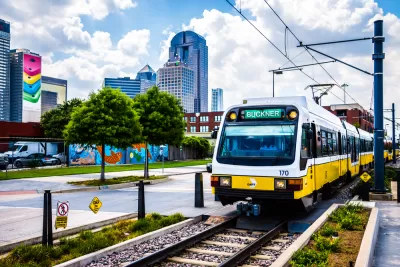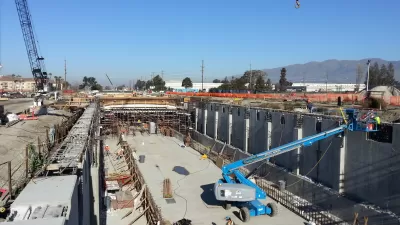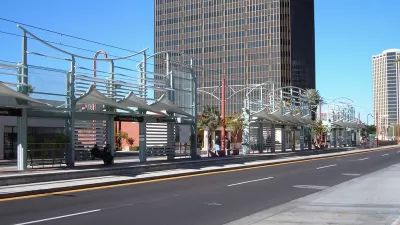The Pilot Program for Expedited Project Delivery reflects the Trump Administration's approach to public transit investments.

The Federal Transit Administration (FTA) announced this week a new grant program called the Pilot Program for Expedited Project Delivery.
The grant program was announced in a Notice Requesting Expressions of Interest.
The Pilot Program is aimed at expediting delivery of new transit capital projects that utilize public-private partnerships, are planned to be operated and maintained by employees of an existing public transportation provider, and have a federal share not exceeding 25 percent of the project capital cost. A maximum of eight projects can be awarded grants under the Pilot Program. To date, Congress has appropriated a total of $25 million for this program.
Both state and local authorities are invited to apply for the program.
Transit analyst Yonah Freemark took to social media to warn about the potential implications for the program, and about what the program signifies about the federal government's current interest in funding public transit projects.
This is an attempt by the Trump Admin to force local governments to turn their transit projects into private investment vehicles, whether or not they want to—even as Trump’s FTA is the primary cause of delays for projects, having put a pause on new grants. Terrible public policy. https://t.co/2Weubt32SC
— Yonah Freemark (@yfreemark) September 13, 2018
Freemark notes in this tweet that the FTA is withholding payments for projects promised by Congress and the president in the most recent omnibus spending bill, approved in March 2018.
FULL STORY: Pilot Program for Expedited Project Delivery Notice Requesting Expressions of Interest

Maui's Vacation Rental Debate Turns Ugly
Verbal attacks, misinformation campaigns and fistfights plague a high-stakes debate to convert thousands of vacation rentals into long-term housing.

Planetizen Federal Action Tracker
A weekly monitor of how Trump’s orders and actions are impacting planners and planning in America.

In Urban Planning, AI Prompting Could be the New Design Thinking
Creativity has long been key to great urban design. What if we see AI as our new creative partner?

King County Supportive Housing Program Offers Hope for Unhoused Residents
The county is taking a ‘Housing First’ approach that prioritizes getting people into housing, then offering wraparound supportive services.

Researchers Use AI to Get Clearer Picture of US Housing
Analysts are using artificial intelligence to supercharge their research by allowing them to comb through data faster. Though these AI tools can be error prone, they save time and housing researchers are optimistic about the future.

Making Shared Micromobility More Inclusive
Cities and shared mobility system operators can do more to include people with disabilities in planning and operations, per a new report.
Urban Design for Planners 1: Software Tools
This six-course series explores essential urban design concepts using open source software and equips planners with the tools they need to participate fully in the urban design process.
Planning for Universal Design
Learn the tools for implementing Universal Design in planning regulations.
planning NEXT
Appalachian Highlands Housing Partners
Mpact (founded as Rail~Volution)
City of Camden Redevelopment Agency
City of Astoria
City of Portland
City of Laramie





























